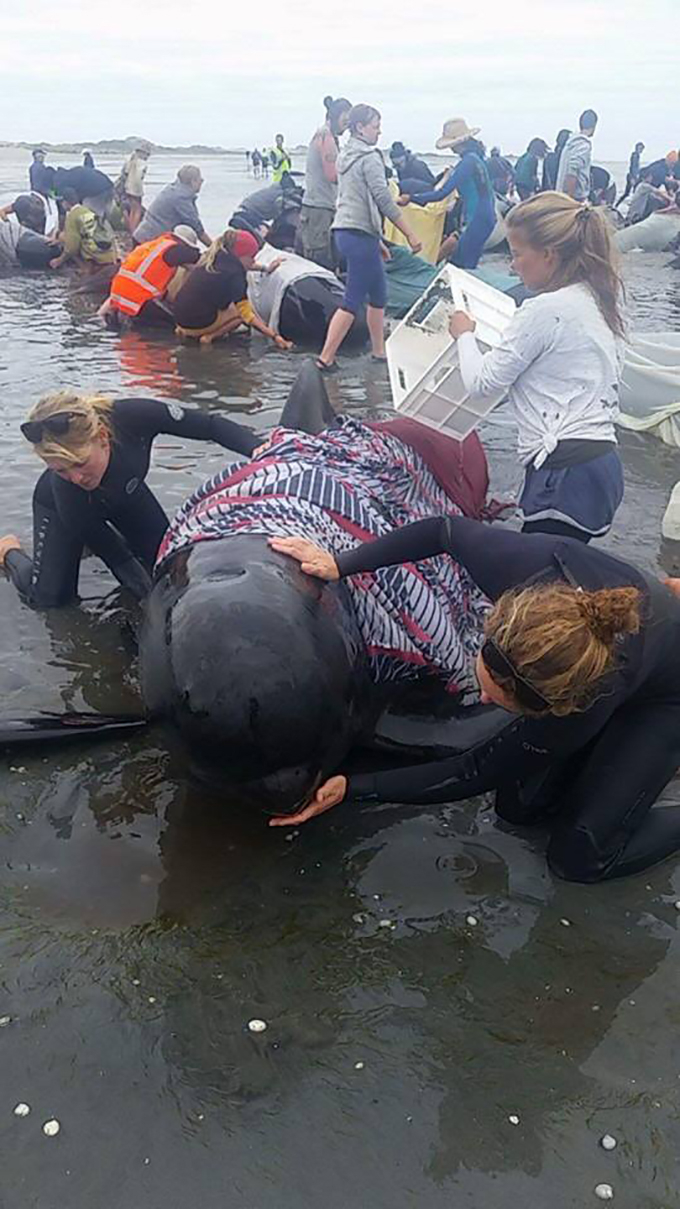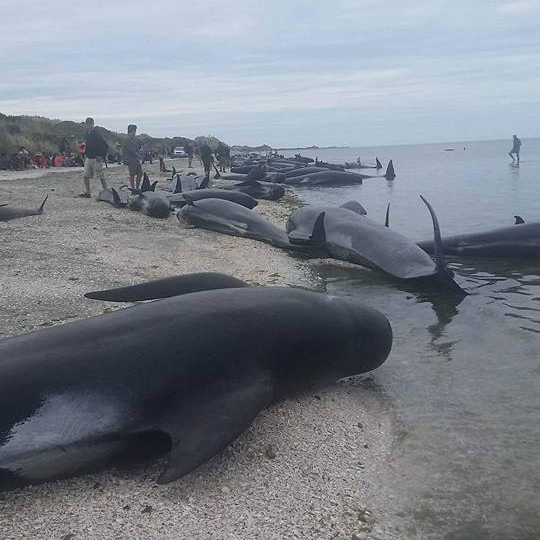
Many of the more than 100 whales refloated off the South Island’s Farewell Spit today at high tide have become stranded again, reports Radio New Zealand.
More than 400 pilot whales were caught at the base of the spit in Golden Bay with most of them dying, but more than 100 were refloated by hundreds of volunteers and Department of Conservation (DoC) workers on high tide at 10.30am, said RNZI.
UPDATE: People warned to stay away from risk of exploding whales

A boat on the water and a line of people in the sea had been trying to encourage the whales to swim in the right direction.
About 50 whales were successfully refloated, but 80-90 have re-stranded on the beach, reports RNZI.
Andrew Lamason, the Department of Conservation operations manager for Golden Bay, said volunteers would now try to keep the whales comfortable until another attempt at a refloat tomorrow.
DoC said it was the biggest whale stranding department staff had ever seen and eight staff who had been there since the early hours of this morning had been putting sheets and buckets of water on the whales.
“Awesome to see so much kindness, love and respect given to the whales. It makes those of us who are unable to help so proud, thank you so much,” said Ngaire Manu among messages of support for the rescuers on the Project Jonah website.
High stranding rates
Project Jonah reports New Zealand has one of the highest whale stranding rates in the world.
“On average, about 300 dolphins and whales strand each year. Most stranding are of individual animals, but mass strandings are common and can involve hundreds of animals at a time,” the project said.
“Strandings are complex events and there are many reasons why dolphins and whales may strand. In most cases the exact cause is unknown.”
Some factors include:
- Old whales may find it difficult to keep up with their pod or resist heavy swells or inshore currents.
- Whales can suffer from a number of diseases – either a temporary affliction or something more severe.
- Natural toxins can poison whales.
- A shortage of food caused by overfishing can result in malnourished whales.
- Calving whales will often seek out sheltered bays to give birth to their young.










































